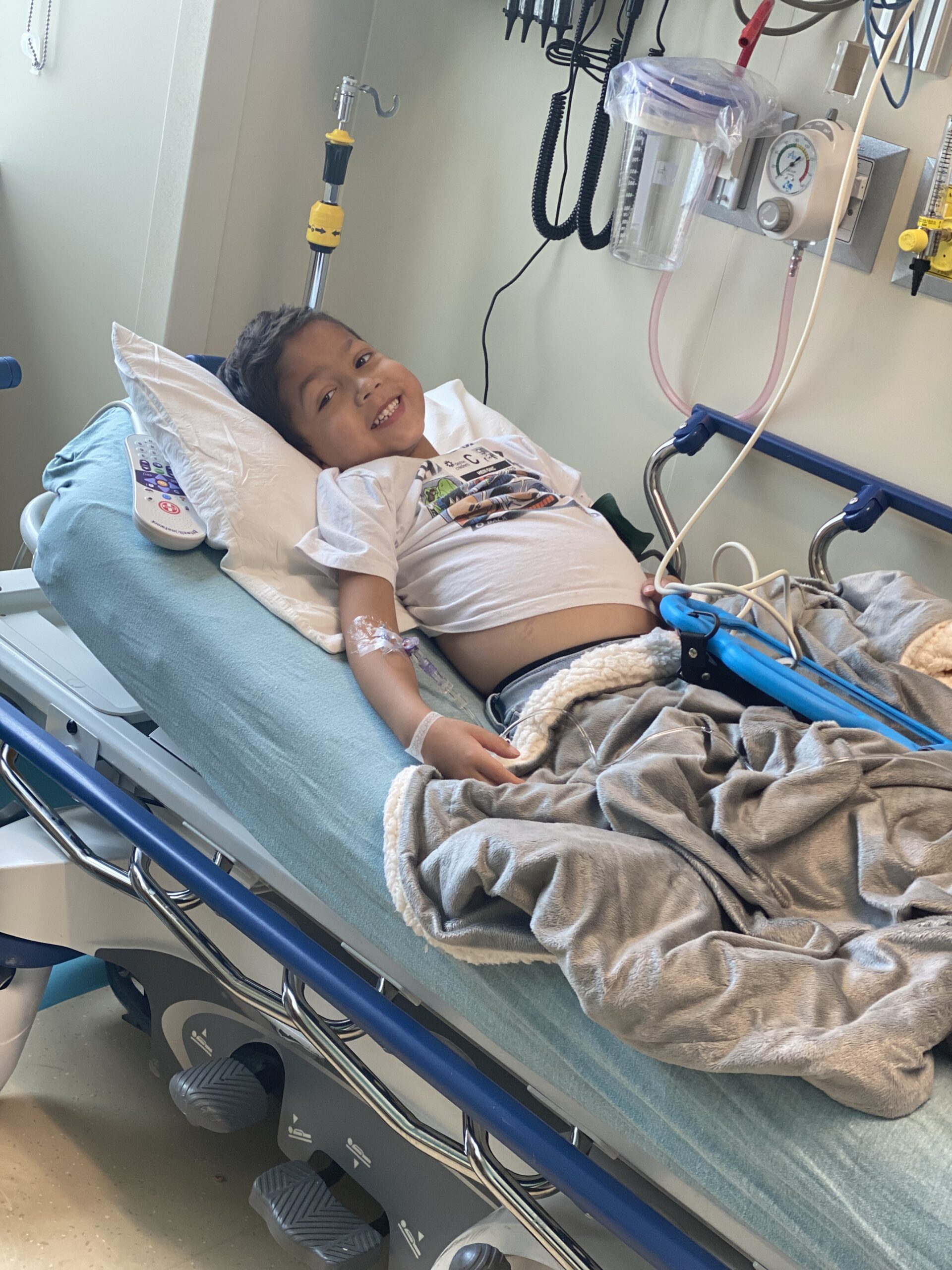
meet our patient ambassador Ayden!
In June 2022, Ayden began waking up with puffy eyes, something many have dealt with, especially during peak spring allergy season. The swelling wouldn’t go away so his mom, Lakia, took him to the pediatrician, where he was treated for an ear infection and allergies. But as the days passed, Ayden was not getting better. In fact, his ankles and belly were starting to swell, too.
“Something just didn’t feel right,” Lakia recalls. “As a nurse, I started researching his symptoms and nephrotic syndrome kept coming up.” Lakia trusted her instincts and took Ayden to Dayton Children’s Hospital urgent care, where she requested blood work. Her concerns were confirmed – this very rare condition affects five out of 100,000 children each year. It affects the kidney, causing protein to leak from the blood into the urine, leading to swelling, an increased risk of infection and blood clots.
His symptoms continued to get worse. Ayden was soon admitted to the hospital and began treatment with high-dose steroids. But his condition took another turn. Ayden woke up one morning crying in pain. “Ayden had a fever and was throwing up, so we went back to the emergency department where they did additional blood work that showed a high white blood cell count,” shares Lakia.
Ayden was diagnosed with a rare complication of nephrotic syndrome called peritonitis, a serious infection of fluid in the stomach. “So not only did Ayden have a rare condition, but he also had an even rarer complication to the condition,” Lakia shared.
Ayden was rushed to surgery to remove the infected fluid in his stomach and was admitted to the pediatric intensive care unit (PICU). But before getting discharged, Ayden had another complication. His blood pressure spiked, requiring additional medication before he could safely go home.

a (very) rare diagnosis
Unfortunately, Ayden still wasn’t responding to treatments like they hoped for. Over the next six weeks, he was in and out of the hospital to receive medications to help remove the fluid from his body and lower his blood pressure. He needed a kidney biopsy and the findings were surprising: Ayden’s condition was caused by two separate diseases, vasculitis and focal segmental glomerulosclerosis (FSGS), a rare kidney disease that affects only about seven people per million each year.
With this new diagnosis, Ayden began a different treatment plan that included immune-suppressing medications. While there was some improvement, it wasn’t enough. “Ayden continued to swell up and had high blood pressure, so we thought something else may be going on,” says Lakia. The vasculitis was actually ANCA-negative vasculitis (AAV), a rare autoimmune disease that causes blood vessels to swell.
After a year of infusions, medications and close monitoring, Ayden finally began to turn a corner. Through trial and error, his medical team found the right combination of treatment. At one point, Ayden was on six doses of blood pressure medications each day, two immune suppressants and regular infusions. Unfortunately, Ayden had permanent damage to his kidney, meaning he would need to be on medicine for the rest of his life.
But today, three years later, Ayden is thriving. He’s down to just one blood pressure medication, no longer needs immune system suppressants, and is more active and energetic. He’s even been able to gain healthy weight and continues to follow up regularly with his care team.
“Every time I had to come to the hospital, they knew what I liked and remembered me,” Ayden shared. After each visit, he’d proudly tell his mom, “I’m Dayton Children’s VIP.”
miracles matter
One of the best ways to keep up to date is to subscribe to our Miracles Matter monthly e-newsletter! We’ll send you a monthly email with patient stories, opportunities to get involved with the hospital, exciting news, and more!
"*" indicates required fields

